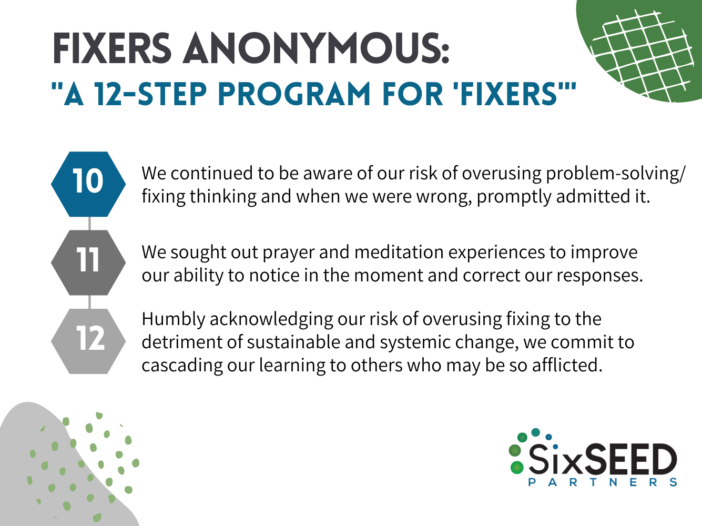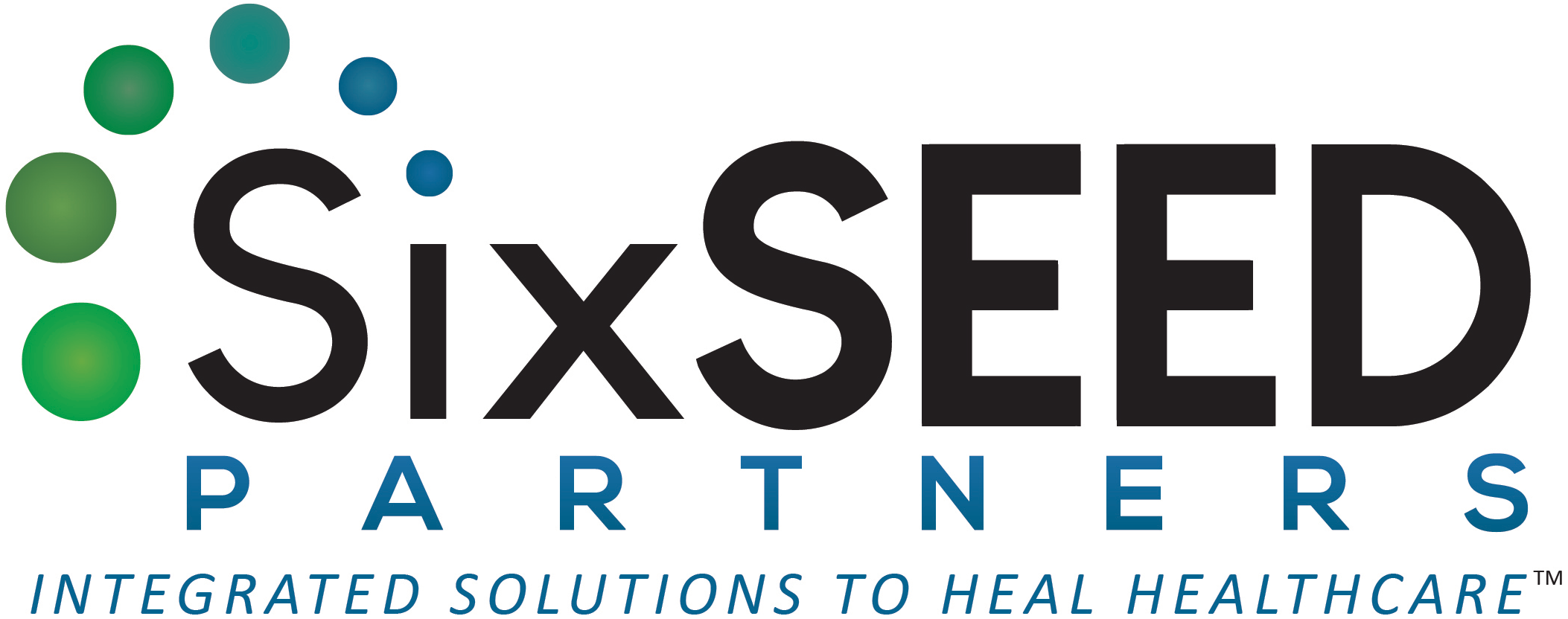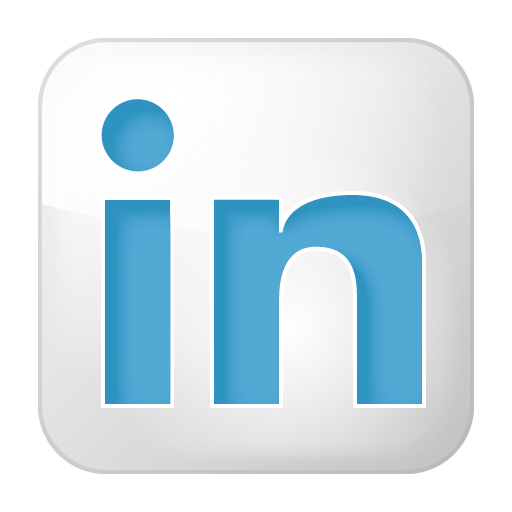
By Joy W. Goldman RN, MS, PCC: A recovering fixer!
We continue our post stress management strategies for those of us who identify as “I’m a fixer!—I fix things!”
Fixing, also known as problem-solving, is a valuable skill, until we approach everything in our work and personal lives as problems to fix. Here we’ve adapted the time-tested 12-step program from Alcoholics Anonymous to habitual problem solvers/ fixers for steps 10-12.
10. We continued to be aware of our risk of overusing problem-solving/ fixing thinking and when we were wrong, promptly admitted it. We enlisted the support of key strategic partners to ensure we were distinguishing problems from polarities (complex challenges). An often heard question was: “Whose perspective/ voice are we missing that we need to bring into our conversation?” We found ourselves noticing the common tensions of leveraging local needs with system needs; having a communication style that was direct along with a more diplomatic one when that was called for. We focused on the quality of our work as we also focused on the cost of our work. To everyone’s delight, we also spent time talking about nurse and physician well-being along with patient and organizational well-being.
11. We sought out prayer and meditation experiences to improve our ability to notice in the moment and correct our responses. Knowing that the demands would not cease, we learned to assume responsibility for caring for ourselves through daily health habits like exercise; mindful and healthy eating; taking time-outs from electronic devices and spending focused time with family, friends and alone time. We began a daily spiritual practice that allowed us to feel connected to something larger than ourselves.
12. Humbly acknowledging our risk of overusing fixing to the detriment of sustainable and systemic change, we commit to cascading our learning to others who may be so afflicted. As I humbly and courageously worked on developing myself, I noticed that there were others on my team who shared this love of “fixing.” My modeling asking for feedback and being curious was a powerful invitation for them to do the same. I realized that it wasn’t sufficient for me to modify my behavior, alone: I had to help others find healthier ways of partnering and perceiving that created a culture of health and well-being for ALL. I now devote at least 15 minutes during my 1:1 meetings and during our team meetings to focus on our individual and collective development. We also engaged SixSEED Partners to help us identify our key tensions and then measure and create action plans around better leveraging these tensions so that we achieved sustainable change and progress with less expense to the system and to us!
If you need more information, please email info@sixseedpartners.com and they’ll be happy to support you! You can find some case studies around this work by going to: https://sixseedpartners.com/resources/.


Leave a Reply